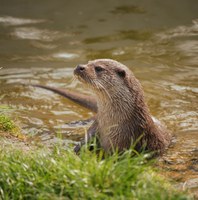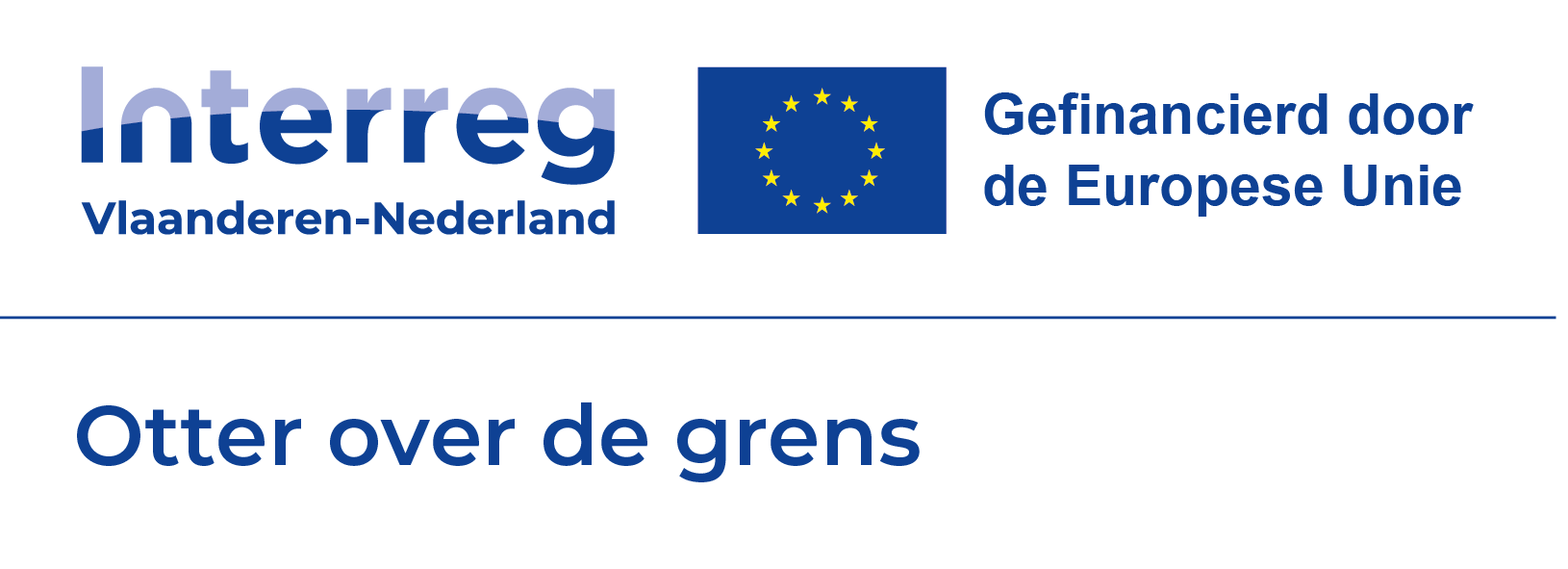Working together for the return of the European otter
 On 1 April 2024, the European "Otter across borders" project was launched. This project aims to improve the otter's habitat in the border region of Flanders and the Netherlands and is supported by the European Union's inter-regional Flanders - Netherlands programme.
On 1 April 2024, the European "Otter across borders" project was launched. This project aims to improve the otter's habitat in the border region of Flanders and the Netherlands and is supported by the European Union's inter-regional Flanders - Netherlands programme.
How and why?
Since 2012, the otter has been observed again from time to time in the Scheldt and Meuse Valley. In the Netherlands, the otter is doing well in the North, but the species still has a long way to go in the South. Sixteen parties - from governments to nature associations - are now working to improve, expand and connect the otter's habitats.
The main challenges
- Traffic: up to 30% of otters in the Northern Netherlands are killed every year. Mapping migration routes and reducing infrastructure fragmentation is critical. Otters follow the banks of the watercourse as they move. Consequently, they do not swim under bridges (unlike the beaver which does), but cross the road when they cannot continue 'on foot'. In this way they become the victims of traffic. Therefore dispersal involves providing dry connections under intersecting roads for the otter.
- Wetlands: otters need a large habitat, which means that the restoration of marshes, rivers and riverbanks is essential.
- Food: otters follow a diet which is 90% fish, which means that healthy fish stocks are essential.
- Pollutants: pollutants can seriously damage the otter's health and reproduction.
Solutions
A cross-border corridor via the Mark River is being developed to connect the Biesbosch with the Antitank Canal and the Scheldt Valley, and through the Kempenbroek in Dutch and Belgian Limburg. There is also a focus upon improving the habitat in the Scheldt Valley, among others, by restoring wetlands. In addition, we must ensure that otters can move safely through the landscape. So roads and canals will be dissected. We also want the project to increase knowledge about the distribution of otters. Scientists at the Research Institute for Nature and Forest (INBO) will use e-DNA (the e stands for environmental) for this purpose. This technique allows water samples to be examined for the presence or absence of the otter's DNA. For a species which is shy and not easily noticed, this monitoring technique shows promise. Finally, we are committed to sensitising all kinds of parties in order to ensure that more attention is paid to the needs of the otter by, for example, road and watercourse managers.
Project objective
To achieve a coherent metapopulation of otters in the Flanders-Netherlands border region, connected to the otter's core range in the North of the Netherlands, Western Germany, Wallonia and Northern France.
Role of Flanders Environment Agency (VMM)
Flanders Environment Agency is working with the municipality of Breda and the Brabant Delta Water Board on a migration corridor for the otter along the Mark River. This corridor should get the otter from South Holland and the Biesbosch to the Antitank Canal and Scheldt Valley and vice versa. This includes projects in urban, natural and agricultural areas.
More information about the project
Project partners
- Flemish government
- Durme NPO
- Equity of the Research Institute for Nature and Forest.
- The municipality of Breda
- Limburg Landscape
- The province of Antwerp
- The province of East Flanders
- Regional Landscape de Voorkempen
- Regional Landscape Kempen and Maasland vzw
- Regional Landscape Rivierenland
- Regional Landscape Scheldt-Durme
- The ARK Foundation
- Flanders Environment Agency
- Water Board Brabantse Delta
- WWF Flanders
- The mammal society
This project is implemented under the Flanders-Netherlands interregional programme and will run from 01/04/2024 to 31/03/2027.
Cost: €3,022,958.05, of which €1,499,979.02 will be contributed by the interregional programme.



